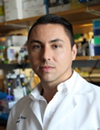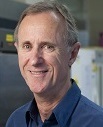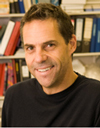Editor-in-ChiefJan Paul Medema, Laboratory of Experimental Oncology and Radiobiology (LEXOR), University of Amsterdam, Netherlands  Jan Paul Medema studied Chemistry in Leiden, the Netherlands, graduating in 1991 with a specialisation in biochemistry and medical biochemistry. He continued his training under the guidance of Professor Hans Bos at the Univeristy of Utrecht and received his PhD in 1996 on the topic of the oncoprotein p21Ras. He then went on to study the role of programmed cell death in tumor biology and immunology in order to understand the basic concepts of cell death signalling and the way these are perturbed in cancer. He unravelled several modes of cell death escape, specifically in the face of a cytotoxic immune response. Later, his work moved into the direction of cancer heterogeneity and its role in cell death resistance, tumor growth and therapy response, centering around the role of cancer stem cells in these processes, as well as the role of inter-patient heterogeneity in the aggressiveness of tumors. Currently, Professor Medema is the Head of the Laboratory of Experimental Oncology and Radiobiology (LEXOR) in the Academic Medical Center of the University of Amsterdam, which has developed several research lines focusing on the mechanisms of survival/cell death resistance of tumor cells against therapeutic interventions. Jan Paul Medema studied Chemistry in Leiden, the Netherlands, graduating in 1991 with a specialisation in biochemistry and medical biochemistry. He continued his training under the guidance of Professor Hans Bos at the Univeristy of Utrecht and received his PhD in 1996 on the topic of the oncoprotein p21Ras. He then went on to study the role of programmed cell death in tumor biology and immunology in order to understand the basic concepts of cell death signalling and the way these are perturbed in cancer. He unravelled several modes of cell death escape, specifically in the face of a cytotoxic immune response. Later, his work moved into the direction of cancer heterogeneity and its role in cell death resistance, tumor growth and therapy response, centering around the role of cancer stem cells in these processes, as well as the role of inter-patient heterogeneity in the aggressiveness of tumors. Currently, Professor Medema is the Head of the Laboratory of Experimental Oncology and Radiobiology (LEXOR) in the Academic Medical Center of the University of Amsterdam, which has developed several research lines focusing on the mechanisms of survival/cell death resistance of tumor cells against therapeutic interventions.
Associate EditorsJerry Edward Chipuk, Mount Sinai School of Medicine, New York, NY, USA  Jerry Edward Chipuk is an Assistant Professor in the Department of Oncological Sciences at the Icahn School of Medicine at Mount Sinai in New York City. He earned a Ph.D. in Pharmacology and Cancer Biology at Case Western Reserve University, and then was a post-doctoral fellow in the laboratory of Douglas R. Green, Ph.D. at the La Jolla Institute for Allergy and Immunology and St Jude Children's Research Hospital. Dr Chipuk joined the faculty at Mount Sinai and became co-appointed in the Department of Dermatology, Tisch Cancer Institute, and the Diabetes, Obesity, and Metabolism Institute. His laboratory is focused on how mitochondrial shape and function contribute to disease etiology, prognosis, and treatment. Jerry Edward Chipuk is an Assistant Professor in the Department of Oncological Sciences at the Icahn School of Medicine at Mount Sinai in New York City. He earned a Ph.D. in Pharmacology and Cancer Biology at Case Western Reserve University, and then was a post-doctoral fellow in the laboratory of Douglas R. Green, Ph.D. at the La Jolla Institute for Allergy and Immunology and St Jude Children's Research Hospital. Dr Chipuk joined the faculty at Mount Sinai and became co-appointed in the Department of Dermatology, Tisch Cancer Institute, and the Diabetes, Obesity, and Metabolism Institute. His laboratory is focused on how mitochondrial shape and function contribute to disease etiology, prognosis, and treatment.
Greg Goodall, SA Pathology, Adelaide, Australia  After graduate studies at the University of Adelaide in enzymology and protein chemistry, Greg Goodall undertook postdoctoral training at the Roche Institute of Molecular Biology in New Jersey, USA. Subsequently moving to Switzerland to work with Witold Filipowicz at the Friedrich Miescher Institute, he embraced the world of RNA and post-transcriptional mechanisms of gene regulation, and has continued in this research field since returning to Adelaide where he is now a Section Leader in the Centre for Cancer Biology, SA Pathology, and an Adjunct Professor of the University of South Australia. His group was among the first to construct and use microarrays for microRNA analysis, which in collaboration with the EMT group of A/Prof. Yeesim Khew-Goodall has led to the landmark discovery of a control of EMT by the miR-200 family, with important implications for tumour metastasis. Current work investigates molecular mechanisms and regulatory networks affecting EMT and cell invasion. After graduate studies at the University of Adelaide in enzymology and protein chemistry, Greg Goodall undertook postdoctoral training at the Roche Institute of Molecular Biology in New Jersey, USA. Subsequently moving to Switzerland to work with Witold Filipowicz at the Friedrich Miescher Institute, he embraced the world of RNA and post-transcriptional mechanisms of gene regulation, and has continued in this research field since returning to Adelaide where he is now a Section Leader in the Centre for Cancer Biology, SA Pathology, and an Adjunct Professor of the University of South Australia. His group was among the first to construct and use microarrays for microRNA analysis, which in collaboration with the EMT group of A/Prof. Yeesim Khew-Goodall has led to the landmark discovery of a control of EMT by the miR-200 family, with important implications for tumour metastasis. Current work investigates molecular mechanisms and regulatory networks affecting EMT and cell invasion.
Vincenzo De Laurenzi, Università 'G. d'Annunzio' Chieti-Pescara, Chieti, Italy  Vincenzo De Laurenzi received his MD in 1990 from the University of Rome Tor Vergata and a PhD in Enzimology from the same University in 1994. Vincenzo De Laurenzi received his MD in 1990 from the University of Rome Tor Vergata and a PhD in Enzimology from the same University in 1994.
Besides working for many years in the laboratory of Gerry Melino in Rome he has worked at the NIH, Bethesda Maryland investigating the molecular mechanisms of skin deseases and more recently at the MRC toxicology unit in Leicester UK. Currently he is Associate Professor of Clinical Biochemistry and Molecular Biology at the University "G. D’Annunzio" in Chieti. His main scientific interests are: the study of the regulation and function of the p53 family of transcription factors, mainly in cancer development and the role of Histone Locus Bodies components in the regulation of cell cycle.
Ricky Johnstone, Peter MacCallum Cancer Center, Victoria, Australia  Professor Ricky Johnstone received his PhD from the University of Melbourne in 1993 and after a postdoc at Harvard Medical School returned to Melbourne to establish the Gene Regulation Laboratory at the Peter MacCallum Cancer Centre in 2000. Professor Johnstone is the Assistant Director of Research at the Peter MacCallum Cancer Centre and plays a key role in defining the strategic direction of the research division. He was awarded an NHMRC Principal Research Fellowship in 2010 and an NHMRC Senior Principal Research Fellowship in 2015 and in 2011 was promoted to Full Professor in the Department of Pathology at the University Of Melbourne. He is a cancer researcher who has utilized genetic mouse models of hemopoietic malignancies and solid tumors to decipher the molecular events underpinning cancer cell death by new targeted anti-cancer agents such as histone deacetylase inhibitors. In 2008 Dr Johnstone and Dr Grant McArthur established the Cancer Therapeutics Program within the Peter MacCallum Cancer Centre to bring together a critical mass of researchers with the aim to translate fundamental research findings into clinical outcomes that will benefit cancer patients. Professor Ricky Johnstone received his PhD from the University of Melbourne in 1993 and after a postdoc at Harvard Medical School returned to Melbourne to establish the Gene Regulation Laboratory at the Peter MacCallum Cancer Centre in 2000. Professor Johnstone is the Assistant Director of Research at the Peter MacCallum Cancer Centre and plays a key role in defining the strategic direction of the research division. He was awarded an NHMRC Principal Research Fellowship in 2010 and an NHMRC Senior Principal Research Fellowship in 2015 and in 2011 was promoted to Full Professor in the Department of Pathology at the University Of Melbourne. He is a cancer researcher who has utilized genetic mouse models of hemopoietic malignancies and solid tumors to decipher the molecular events underpinning cancer cell death by new targeted anti-cancer agents such as histone deacetylase inhibitors. In 2008 Dr Johnstone and Dr Grant McArthur established the Cancer Therapeutics Program within the Peter MacCallum Cancer Centre to bring together a critical mass of researchers with the aim to translate fundamental research findings into clinical outcomes that will benefit cancer patients.
James J Manfredi, Mount Sinai School of Medicine, New York, NY, USA  James Manfredi's research efforts have focused on p53, the most commonly mutated gene in human tumors, as well as the interplay between p53 and its negative regulator Mdm2. James received his AB in Biology from Cornell University and his MS and PhD from the Albert Einstein College of Medicine in the Department of Molecular Pharmacology. James received his PhD working with Dr Susan Horwitz where he performed some of the earliest mechanistic studies on taxol. These investigations were recognized with a predoctoral fellowship from the Pharmaceutical Manufacturers Association. As a fellow with the Damon Runyon-Walter Winchell Cancer Fund and the American Heart Association, Dr Manfredi went on to train in the laboratory of Dr Daniel Branton at Harvard University studying the role of coated vesicles in endocytosis. He returned to the area of cancer research with further post-doctoral training in the laboratory of Dr Carol Prives at Columbia University, where he began his studies on the molecular biology of the tumor suppressor p53. He is currently a Full Professor with Tenure in the Departments of Oncological Sciences with a joint appointment in the Department of Developmental & Regenerative Biology at the Icahn School of Medicine at Mount Sinai. He is a member of the teaching faculty of the Graduate School of Biological Sciences as well as the Tisch Cancer Institute. James Manfredi's research efforts have focused on p53, the most commonly mutated gene in human tumors, as well as the interplay between p53 and its negative regulator Mdm2. James received his AB in Biology from Cornell University and his MS and PhD from the Albert Einstein College of Medicine in the Department of Molecular Pharmacology. James received his PhD working with Dr Susan Horwitz where he performed some of the earliest mechanistic studies on taxol. These investigations were recognized with a predoctoral fellowship from the Pharmaceutical Manufacturers Association. As a fellow with the Damon Runyon-Walter Winchell Cancer Fund and the American Heart Association, Dr Manfredi went on to train in the laboratory of Dr Daniel Branton at Harvard University studying the role of coated vesicles in endocytosis. He returned to the area of cancer research with further post-doctoral training in the laboratory of Dr Carol Prives at Columbia University, where he began his studies on the molecular biology of the tumor suppressor p53. He is currently a Full Professor with Tenure in the Departments of Oncological Sciences with a joint appointment in the Department of Developmental & Regenerative Biology at the Icahn School of Medicine at Mount Sinai. He is a member of the teaching faculty of the Graduate School of Biological Sciences as well as the Tisch Cancer Institute.
Jean-Ehrland Ricci, INSERM, Nice, France
 Jean-Ehrland Ricci is leading the ‘Metabolic control of cell death' team at the Mediterranean Center for Medical Research (C3M), INSERM U1065 in Nice, France. He started his career studying the death receptor- and T cell receptor-induced apoptosis and obtained his Ph.D. from the University of Nice Sophia-Antipolis in 2000. He then moved to San Diego, CA in the ‘La Jolla Institute for Allergy and Immunology’ institute to work under the supervision of Dr Douglas R Green. He studied the link between metabolism (mitochondrial and glycolytic) and the regulation of caspase dependent and independent cell death. Jean-Ehrland started his lab in Nice in 2006, where his team studies the role of metabolism in cancers, cell death and immune regulation. Jean-Ehrland Ricci is leading the ‘Metabolic control of cell death' team at the Mediterranean Center for Medical Research (C3M), INSERM U1065 in Nice, France. He started his career studying the death receptor- and T cell receptor-induced apoptosis and obtained his Ph.D. from the University of Nice Sophia-Antipolis in 2000. He then moved to San Diego, CA in the ‘La Jolla Institute for Allergy and Immunology’ institute to work under the supervision of Dr Douglas R Green. He studied the link between metabolism (mitochondrial and glycolytic) and the regulation of caspase dependent and independent cell death. Jean-Ehrland started his lab in Nice in 2006, where his team studies the role of metabolism in cancers, cell death and immune regulation.
|

 Jan Paul Medema studied Chemistry in Leiden, the Netherlands, graduating in 1991 with a specialisation in biochemistry and medical biochemistry. He continued his training under the guidance of Professor Hans Bos at the Univeristy of Utrecht and received his PhD in 1996 on the topic of the oncoprotein p21Ras. He then went on to study the role of programmed cell death in tumor biology and immunology in order to understand the basic concepts of cell death signalling and the way these are perturbed in cancer. He unravelled several modes of cell death escape, specifically in the face of a cytotoxic immune response. Later, his work moved into the direction of cancer heterogeneity and its role in cell death resistance, tumor growth and therapy response, centering around the role of cancer stem cells in these processes, as well as the role of inter-patient heterogeneity in the aggressiveness of tumors. Currently, Professor Medema is the Head of the Laboratory of Experimental Oncology and Radiobiology (LEXOR) in the Academic Medical Center of the University of Amsterdam, which has developed several research lines focusing on the mechanisms of survival/cell death resistance of tumor cells against therapeutic interventions.
Jan Paul Medema studied Chemistry in Leiden, the Netherlands, graduating in 1991 with a specialisation in biochemistry and medical biochemistry. He continued his training under the guidance of Professor Hans Bos at the Univeristy of Utrecht and received his PhD in 1996 on the topic of the oncoprotein p21Ras. He then went on to study the role of programmed cell death in tumor biology and immunology in order to understand the basic concepts of cell death signalling and the way these are perturbed in cancer. He unravelled several modes of cell death escape, specifically in the face of a cytotoxic immune response. Later, his work moved into the direction of cancer heterogeneity and its role in cell death resistance, tumor growth and therapy response, centering around the role of cancer stem cells in these processes, as well as the role of inter-patient heterogeneity in the aggressiveness of tumors. Currently, Professor Medema is the Head of the Laboratory of Experimental Oncology and Radiobiology (LEXOR) in the Academic Medical Center of the University of Amsterdam, which has developed several research lines focusing on the mechanisms of survival/cell death resistance of tumor cells against therapeutic interventions. Jerry Edward Chipuk is an Assistant Professor in the Department of Oncological Sciences at the Icahn School of Medicine at Mount Sinai in New York City. He earned a Ph.D. in Pharmacology and Cancer Biology at Case Western Reserve University, and then was a post-doctoral fellow in the laboratory of Douglas R. Green, Ph.D. at the La Jolla Institute for Allergy and Immunology and St Jude Children's Research Hospital. Dr Chipuk joined the faculty at Mount Sinai and became co-appointed in the Department of Dermatology, Tisch Cancer Institute, and the Diabetes, Obesity, and Metabolism Institute. His laboratory is focused on how mitochondrial shape and function contribute to disease etiology, prognosis, and treatment.
Jerry Edward Chipuk is an Assistant Professor in the Department of Oncological Sciences at the Icahn School of Medicine at Mount Sinai in New York City. He earned a Ph.D. in Pharmacology and Cancer Biology at Case Western Reserve University, and then was a post-doctoral fellow in the laboratory of Douglas R. Green, Ph.D. at the La Jolla Institute for Allergy and Immunology and St Jude Children's Research Hospital. Dr Chipuk joined the faculty at Mount Sinai and became co-appointed in the Department of Dermatology, Tisch Cancer Institute, and the Diabetes, Obesity, and Metabolism Institute. His laboratory is focused on how mitochondrial shape and function contribute to disease etiology, prognosis, and treatment. After graduate studies at the University of Adelaide in enzymology and protein chemistry, Greg Goodall undertook postdoctoral training at the Roche Institute of Molecular Biology in New Jersey, USA. Subsequently moving to Switzerland to work with Witold Filipowicz at the Friedrich Miescher Institute, he embraced the world of RNA and post-transcriptional mechanisms of gene regulation, and has continued in this research field since returning to Adelaide where he is now a Section Leader in the Centre for Cancer Biology, SA Pathology, and an Adjunct Professor of the University of South Australia. His group was among the first to construct and use microarrays for microRNA analysis, which in collaboration with the EMT group of A/Prof. Yeesim Khew-Goodall has led to the landmark discovery of a control of EMT by the miR-200 family, with important implications for tumour metastasis. Current work investigates molecular mechanisms and regulatory networks affecting EMT and cell invasion.
After graduate studies at the University of Adelaide in enzymology and protein chemistry, Greg Goodall undertook postdoctoral training at the Roche Institute of Molecular Biology in New Jersey, USA. Subsequently moving to Switzerland to work with Witold Filipowicz at the Friedrich Miescher Institute, he embraced the world of RNA and post-transcriptional mechanisms of gene regulation, and has continued in this research field since returning to Adelaide where he is now a Section Leader in the Centre for Cancer Biology, SA Pathology, and an Adjunct Professor of the University of South Australia. His group was among the first to construct and use microarrays for microRNA analysis, which in collaboration with the EMT group of A/Prof. Yeesim Khew-Goodall has led to the landmark discovery of a control of EMT by the miR-200 family, with important implications for tumour metastasis. Current work investigates molecular mechanisms and regulatory networks affecting EMT and cell invasion. Vincenzo De Laurenzi received his MD in 1990 from the University of Rome Tor Vergata and a PhD in Enzimology from the same University in 1994.
Vincenzo De Laurenzi received his MD in 1990 from the University of Rome Tor Vergata and a PhD in Enzimology from the same University in 1994. Professor Ricky Johnstone received his PhD from the University of Melbourne in 1993 and after a postdoc at Harvard Medical School returned to Melbourne to establish the Gene Regulation Laboratory at the Peter MacCallum Cancer Centre in 2000. Professor Johnstone is the Assistant Director of Research at the Peter MacCallum Cancer Centre and plays a key role in defining the strategic direction of the research division. He was awarded an NHMRC Principal Research Fellowship in 2010 and an NHMRC Senior Principal Research Fellowship in 2015 and in 2011 was promoted to Full Professor in the Department of Pathology at the University Of Melbourne. He is a cancer researcher who has utilized genetic mouse models of hemopoietic malignancies and solid tumors to decipher the molecular events underpinning cancer cell death by new targeted anti-cancer agents such as histone deacetylase inhibitors. In 2008 Dr Johnstone and Dr Grant McArthur established the Cancer Therapeutics Program within the Peter MacCallum Cancer Centre to bring together a critical mass of researchers with the aim to translate fundamental research findings into clinical outcomes that will benefit cancer patients.
Professor Ricky Johnstone received his PhD from the University of Melbourne in 1993 and after a postdoc at Harvard Medical School returned to Melbourne to establish the Gene Regulation Laboratory at the Peter MacCallum Cancer Centre in 2000. Professor Johnstone is the Assistant Director of Research at the Peter MacCallum Cancer Centre and plays a key role in defining the strategic direction of the research division. He was awarded an NHMRC Principal Research Fellowship in 2010 and an NHMRC Senior Principal Research Fellowship in 2015 and in 2011 was promoted to Full Professor in the Department of Pathology at the University Of Melbourne. He is a cancer researcher who has utilized genetic mouse models of hemopoietic malignancies and solid tumors to decipher the molecular events underpinning cancer cell death by new targeted anti-cancer agents such as histone deacetylase inhibitors. In 2008 Dr Johnstone and Dr Grant McArthur established the Cancer Therapeutics Program within the Peter MacCallum Cancer Centre to bring together a critical mass of researchers with the aim to translate fundamental research findings into clinical outcomes that will benefit cancer patients. James Manfredi's research efforts have focused on p53, the most commonly mutated gene in human tumors, as well as the interplay between p53 and its negative regulator Mdm2. James received his AB in Biology from Cornell University and his MS and PhD from the Albert Einstein College of Medicine in the Department of Molecular Pharmacology. James received his PhD working with Dr Susan Horwitz where he performed some of the earliest mechanistic studies on taxol. These investigations were recognized with a predoctoral fellowship from the Pharmaceutical Manufacturers Association. As a fellow with the Damon Runyon-Walter Winchell Cancer Fund and the American Heart Association, Dr Manfredi went on to train in the laboratory of Dr Daniel Branton at Harvard University studying the role of coated vesicles in endocytosis. He returned to the area of cancer research with further post-doctoral training in the laboratory of Dr Carol Prives at Columbia University, where he began his studies on the molecular biology of the tumor suppressor p53. He is currently a Full Professor with Tenure in the Departments of Oncological Sciences with a joint appointment in the Department of Developmental & Regenerative Biology at the Icahn School of Medicine at Mount Sinai. He is a member of the teaching faculty of the Graduate School of Biological Sciences as well as the Tisch Cancer Institute.
James Manfredi's research efforts have focused on p53, the most commonly mutated gene in human tumors, as well as the interplay between p53 and its negative regulator Mdm2. James received his AB in Biology from Cornell University and his MS and PhD from the Albert Einstein College of Medicine in the Department of Molecular Pharmacology. James received his PhD working with Dr Susan Horwitz where he performed some of the earliest mechanistic studies on taxol. These investigations were recognized with a predoctoral fellowship from the Pharmaceutical Manufacturers Association. As a fellow with the Damon Runyon-Walter Winchell Cancer Fund and the American Heart Association, Dr Manfredi went on to train in the laboratory of Dr Daniel Branton at Harvard University studying the role of coated vesicles in endocytosis. He returned to the area of cancer research with further post-doctoral training in the laboratory of Dr Carol Prives at Columbia University, where he began his studies on the molecular biology of the tumor suppressor p53. He is currently a Full Professor with Tenure in the Departments of Oncological Sciences with a joint appointment in the Department of Developmental & Regenerative Biology at the Icahn School of Medicine at Mount Sinai. He is a member of the teaching faculty of the Graduate School of Biological Sciences as well as the Tisch Cancer Institute. Jean-Ehrland Ricci is leading the ‘Metabolic control of cell death' team at the Mediterranean Center for Medical Research (C3M), INSERM U1065 in Nice, France. He started his career studying the death receptor- and T cell receptor-induced apoptosis and obtained his Ph.D. from the University of Nice Sophia-Antipolis in 2000. He then moved to San Diego, CA in the ‘La Jolla Institute for Allergy and Immunology’ institute to work under the supervision of Dr Douglas R Green. He studied the link between metabolism (mitochondrial and glycolytic) and the regulation of caspase dependent and independent cell death. Jean-Ehrland started his lab in Nice in 2006, where his team studies the role of metabolism in cancers, cell death and immune regulation.
Jean-Ehrland Ricci is leading the ‘Metabolic control of cell death' team at the Mediterranean Center for Medical Research (C3M), INSERM U1065 in Nice, France. He started his career studying the death receptor- and T cell receptor-induced apoptosis and obtained his Ph.D. from the University of Nice Sophia-Antipolis in 2000. He then moved to San Diego, CA in the ‘La Jolla Institute for Allergy and Immunology’ institute to work under the supervision of Dr Douglas R Green. He studied the link between metabolism (mitochondrial and glycolytic) and the regulation of caspase dependent and independent cell death. Jean-Ehrland started his lab in Nice in 2006, where his team studies the role of metabolism in cancers, cell death and immune regulation. 



 京公网安备 11010802027423号
京公网安备 11010802027423号